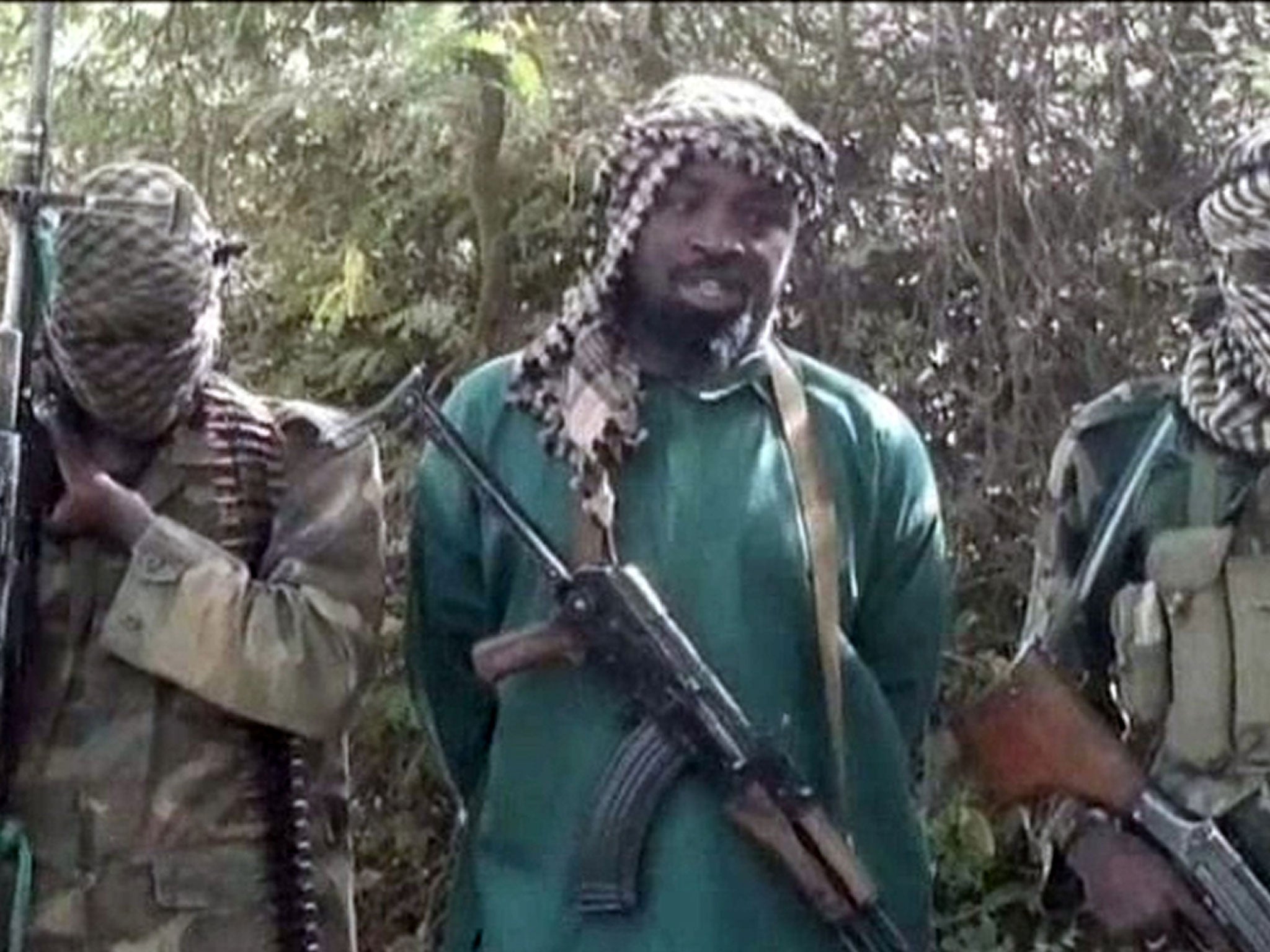Nigerian troops begin biggest ever assault on Islamist sect
Fighter aircraft join renewed offensive against militant group in Borno state

Your support helps us to tell the story
From reproductive rights to climate change to Big Tech, The Independent is on the ground when the story is developing. Whether it's investigating the financials of Elon Musk's pro-Trump PAC or producing our latest documentary, 'The A Word', which shines a light on the American women fighting for reproductive rights, we know how important it is to parse out the facts from the messaging.
At such a critical moment in US history, we need reporters on the ground. Your donation allows us to keep sending journalists to speak to both sides of the story.
The Independent is trusted by Americans across the entire political spectrum. And unlike many other quality news outlets, we choose not to lock Americans out of our reporting and analysis with paywalls. We believe quality journalism should be available to everyone, paid for by those who can afford it.
Your support makes all the difference.Nigerian troops have bombarded camps in the country’s north-east, killing an unknown number of people, in what has been heralded as the biggest military offensive against the Islamist militant group, Boko Haram, since it began its uprising.
Jets and helicopters launched air strikes on the Sambisa game reserve, around 70 km south of the Borno state capital, Maiduguri, as the armed forces tried to regain territory controlled by Boko Haram in its strongholds of Borno, Yobe and Adamawa. Brigadier-General Chris Olukolade told Reuters news agency that the number of dead could not yet be confirmed.
Borno, Yobe and Adamawa were placed under a state of emergency on Wednesday by President Goodluck Jonathan as he finally admitted his country was at war. “We will hunt them down, we will fish them out, and we will bring them to justice,” he said.
Missing from the bellicose statements was a clear definition of who the state is at war with. Nominally, the enemy is Boko Haram, a religious sect whose name roughly translates to “Western education is forbidden”. It has been fighting a brutal insurgency since 2009, denouncing the federal government as corrupt and demanding the imposition of Sharia law.
But it remains far from clear who supports the insurgency or whether it is even the most deadly actor in Nigeria, despite the horror of its actions, which often take the form of church bombings and sectarian attacks.
In Maiduguri, the dusty northern birthplace of Boko Haram, 60 bodies a day are being delivered by the army to a hospital morgue. They are not casualties of religious extremists but young men killed by security services, which some analysts claim are out of control. “Boko Haram’s own operations have often been brutal,” said Professor Paul Rogers, an international security expert. “But it is clear that the Nigerian military is guilty of extensive atrocities.”
Last month, in the village of Baga, where the army claimed it was fighting militants, 180 civilians were killed.
The roots of Islamic extremism in northern Nigeria are clear. Africa’s most-populous country is almost evenly split between a predominantly Muslim north and a majority Christian south. The distribution of wealth is less even. More than two-thirds of northerners live in poverty, compared with fewer than a third of southerners. The strongholds of Boko Haram support are the destitute cities of the north, not the vibrant southern metropolises, such as Lagos. Radical Islam took root as a protest against this poverty and the northern elite, whom Boko Haram’s founding cleric, Mohammad Yussuf, saw as corrupted by godless Westernism. “The group itself is an effect and not a cause,” said a Nigerian analyst, Chris Ngwodo. “It is a symptom of decades of failed government and elite delinquency finally ripening into social chaos.”
The real division in Nigeria is not necessarily north versus south but elite interests versus those of ordinary Nigerians. A former US ambassador, John Campbell, says the central purpose of the Nigerian state is to divide up the country’s oil wealth among elites, making politics a zero-sum game.
In the north, the elite has tried to co-opt Boko Haram or appease it. Some analysts argue that the radicals are being used to make Nigeria ungovernable as a means of wresting back control from Mr Jonathan – a southerner who is accused of violating an informal deal to rotate power between northern and southern members of the ruling party. The southern response has been two-fold. Some have contemplated an amnesty for Boko Haram – the same tactic used in buying off Niger Delta militant leaders to calm an insurgency. The other has been the use of military force, despite the spiral of tit-for-tat atrocities.
Join our commenting forum
Join thought-provoking conversations, follow other Independent readers and see their replies
Comments